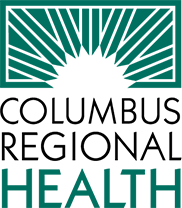We’ve Come a Long Way Against Breast Cancer
For women like me — women who lost young mothers to breast cancer back in the early 1980s, years seemed to go by as we mapped out breast cancer risks without much new information surfacing. But today, we are learning and seeing more.
One in eight American women will develop breast cancer. Some of these women have a strong family history of breast cancer passed down through family genes. This is known as hereditary or familial breast cancer.
We can look at the BRCA1 and BRCA2 genes now to get a clear picture of which are genetically linked. But 80 percent of breast cancers are known as sporadic. That means they happen without a true genetic link. Now, though, we have additional DNA testing available to help predict when we might see a sporadic breast cancer.
Know Your risks
It’s important that all women know their clinical risk for breast cancer. Women may be asked certain questions, including age, how old they were when they started their periods and age when they first gave birth to a child.
By knowing all these things and putting together a risk profile, we can tell a woman her likely chances of developing breast cancer over five years and her lifetime. We can also use genetic testing to look for a genetic link to breast cancer. We can now use both to get the clearest risk assessment ever.
Looking separately at clinical risk factors and genetic testing helps us put the pieces together, but looking at everything together truly gives women a clearer, brighter picture. We know, too, that finding a genetic link to breast cancer will enable a woman to have full preventive heath care options for managing risk. This may include preventive mastectomies with breast reconstruction, medications or intensive screening. A woman chooses what’s right for her life and family. We know, too, that those sporadic breast cancers found early have a very high survival rate — better than in the early 1980's.
Risks Vary Throughout Life
As a woman gets older, she goes through many changes that can affect her risk of developing breast cancer. We know that estrogen in a woman’s body — necessary for normal growth, childbearing, controlling menstrual periods, and heart and bone health over her lifetime — can also contribute to breast cancer risk. The lifetime production of estrogen can lead to increased risk.
Breast cancer risks increase every year as a woman ages. Breast cancer occurs in younger women, but the women most at risk of the disease are women over 40. All women ages 40 and over should have a yearly screening mammography. Medicine and science have shown us new factors that may be associated with breast cancer.
We know that women should watch their weight, limit obesity and exercise regularly while limiting their alcohol intake to decrease their breast cancer risk. Today, the hope is very real. We know so much. We have digital screening mammography for women’s regular use beginning at age 40, allowing us to see much better than analog films. We have breast MRI that allows women with dense breast tissues to have better views of the dense tissue or to see a cancer more clearly to look for additional disease. We have breast ultrasound, clinical breast exams by physicians, breast self-exams and better diagnostic mammography.
All this paired with chemoprevention (medications that reduce breast cancer risk), and more knowledge about diet/exercise, smoking cessation and reducing/eliminating alcohol intake make for the brightest year toward the best breast health plan ever.

CRH News
-
CRH recognized for excellence in lactation care
Jun 24, 2024, 15:26 by DeClue, A.In addition, the facility demonstrated that it has recently completed activities that help protect, promote, and support breastfeeding.Full story -
Take the ColumBUS Transit Survey
Jun 20, 2024, 08:33 by Newton, A.ColumBUS Transit is conducting a Route Study to look for opportunities to improve the service. Your input will help guide priorities and inform decisions about the future of public transit in our community.Full story -
Orthopedics and Sports Medicine practice moves to NexusPark
Jun 19, 2024, 14:24 by DeClue, A.CRH Orthopedics and Sports Medicine will open at NexusPark on July 1.Full story -
Memorial Day Holiday Physician Office Hours
May 22, 2024, 11:49 by DeClue, A.In observance of the Memorial Day holiday, most Columbus Regional Health Physicians offices and outpatient clinics will be closed on Monday, May 27, 2024.Full story -
Guardian Response Trains with CRH on Patient Transport
Apr 26, 2024, 15:25 by DeClue, A.On April 29 and May 2, Columbus Regional Health and area first responders will be conducting a training session in partnership with military representatives. This is a planned, simulated emergency drill.Full story -
Final Two CRH Practices Move to NexusPark
Apr 18, 2024, 12:36 by DeClue, A.CRH at NexusPark officially opened in late January, and more than 15 provider practices and services have relocated to the space in the first quarter of 2024.Full story

